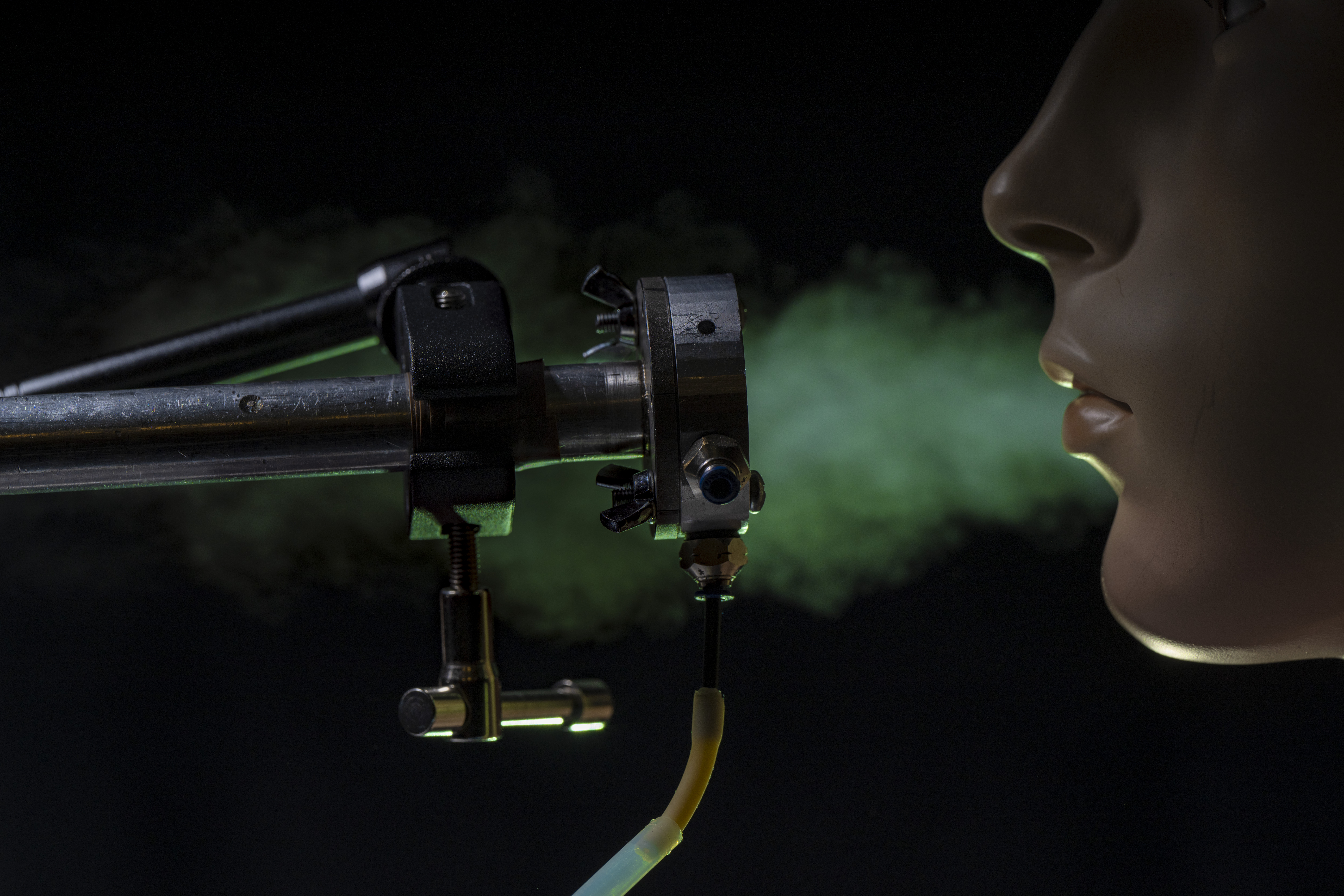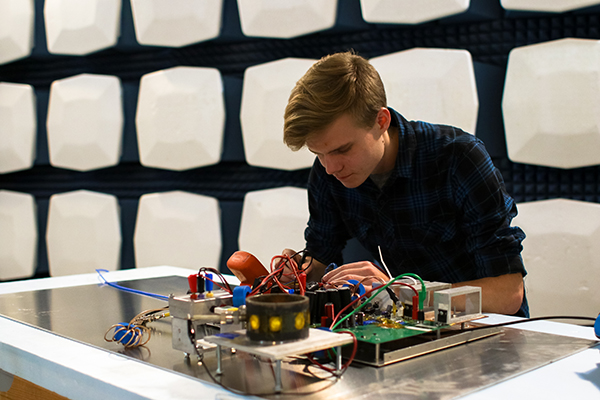Undergraduate Degree in Electrical Engineering
Earn a Bachelor's Degree in Electrical Engineering
Dive into the world of electrical engineering with a Bachelor's Degree from Missouri S&T.

Dive into the world of electrical engineering with a Bachelor's Degree from Missouri S&T. This program empowers you to transform natural resources into societal solutions. Harness the power of energy and information to light up tomorrow, creating innovative systems for power, communication, and transportation. Learn today, solve for tomorrow.
Minors and Emphasis Areas
Our minor and different emphasis area options help you focus on your interests and career goals. Complete 15 credit hours of approved courses to establish a minor and/or at least three (3 credit hour courses) with one of those courses being a 4000 level course in that area to complete an emphasis.
View Minor Catalog Information
View Emphasis Area Catalog Information
Note: Forms for Change of Major and Application for Minor are found on the registrar’s website
To apply for the certificate, fill out a Change of Major form. Complete the top of the form. In box 1, fill out your major. In the next line (emphasis area) fill in the certificate you have completed (Automation, etc.). Then Fill in the expected graduation date. Fill in the name of your academic advisor. Lastly, send the form to the Department Chair for signature.

The Graduate Track Pathway (GTP) Program
(formerly Accelerated BS/MS)
The Graduate Track Pathway (GTP) program offers early provisional admission to the MS program to exceptional undergraduate students and is designed for these students to earn coursework credit towards their Electrical Engineering (EE) or Computer Engineering (CpE) MS degree while completing their BS degree in EE or CpE. Students may begin working on their MS study (either thesis or non-thesis options) as an undergraduate and may apply up to nine ECE lecture credit hours (5xxx-level or above) to satisfy both BS and MS requirements.

Follow Electrical and Computer Engineering